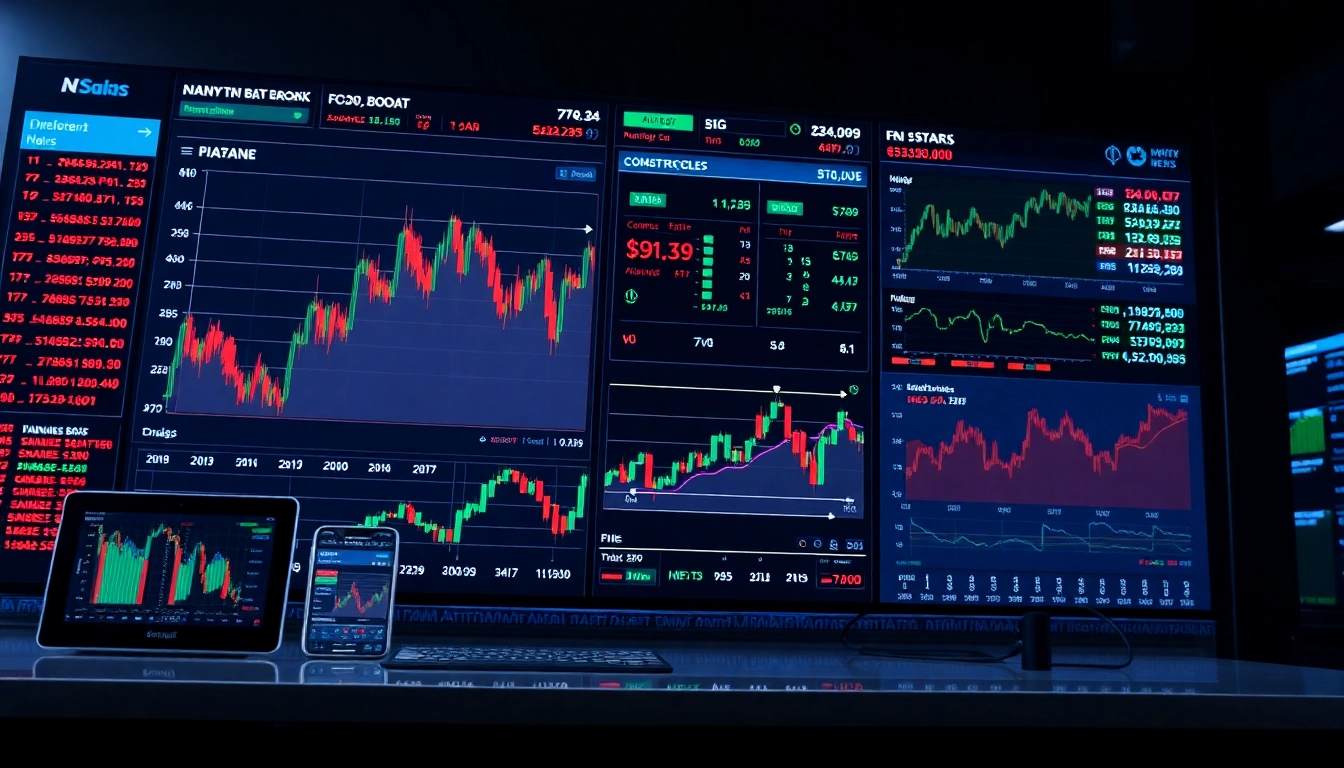Staying ahead in the fast-paced world of investing requires more than just instinct; it demands a strategic approach to understanding and leveraging the Latest Investment News. The ability to interpret fresh market developments, identify emerging opportunities, and adapt your portfolio swiftly can significantly elevate your investment success. In this comprehensive guide, we explore how investors can harness the power of current news, analyze market trends effectively, and integrate timely information into their investment strategies for sustained growth and risk management.
Understanding the Significance of the Latest Investment News
How Up-to-Date News Influences Investment Strategies
In the dynamic landscape of global finance, the latest investment news acts as a crucial compass. It reflects real-time shifts in economic indicators, geopolitical events, corporate performance, and technological innovations. Investors who proactively track this information can anticipate market movements, adjust entry and exit points, and refine their asset allocations accordingly. For example, emerging regulatory policies in a sector can open doors to new growth opportunities or signal potential risks, making timely news a vital component of strategic decision-making.
Identifying Reliable Sources for Investment Updates
Given the vast quantity of information available, discerning credible sources is essential. Trusted outlets include financial news agencies like Bloomberg, Reuters, and CNBC, along with official economic reports from central banks and government agencies. Utilizing specialized platforms that curate verified news ensures informed decisions based on accurate data. Developing a routine of cross-referencing multiple reputable sources helps filter out misinformation and regional biases, thus enhancing the reliability of your investment insights.
Common Challenges in Interpreting Latest Investment News
Market news can be complex and sometimes conflicting, leading to analysis paralysis or misguided actions. Investors often struggle with short-term volatility, interpretative biases, and the timing of news releases. Overreacting to every headline can result in unnecessary trading, while underreacting might cause missed opportunities. Overcoming these challenges requires establishing clear criteria for news relevance, understanding market context, and cultivating patience and discipline to interpret news within broader strategic frameworks.
Analyzing Market Trends Through Recent News
Key Indicators in Latest Investment News
To decode market signals, focus on specific indicators within news reports. These include economic data releases such as GDP growth rates, employment figures, inflation reports, and central bank statements. Sudden changes in corporate earnings, geopolitical developments, or shifts in commodity prices also serve as vital clues. When these indicators appear collectively, they reveal underlying market sentiments, helping investors gauge whether trends are momentum-driven or signals of deeper systemic shifts.
Spotting Emerging Opportunities and Risks
Timely news can unveil opportunities like regulatory relaxations, technological breakthroughs, or geopolitical stability that favor certain sectors. Conversely, it can highlight risks such as trade disputes, economic downturns, or policy uncertainties that might adversely affect investments. For instance, announcements of infrastructure investments can boost construction and materials sectors, while escalating tariffs might threaten global supply chains. Skilled investors monitor these developments to pivot strategies and optimize portfolio resilience.
Case Studies of Successful Market Predictions
Consider the 2020 market response to the COVID-19 pandemic. Investors attentive to early health reports and government responses managed to anticipate economic slowdown and shifts in consumer behavior. Those who interpreted emerging data correctly and diversified accordingly benefited from early positioning in sectors like technology, healthcare, and remote services. Such success stories underscore the importance of integrating real-time news analysis with broader economic understanding and highlight how proactive approaches can yield substantial gains.
Integrating Investment News Into Your Portfolio
Best Practices for Timely Investment Decisions
Decision-making speed is vital in capitalizing on news-driven opportunities. Establishing a structured process that includes setting alerts for specific markets, leveraging news aggregation tools, and conducting rapid analysis allows investors to act swiftly. Additionally, maintaining a well-defined investment thesis helps separate short-term noise from meaningful trends. Regularly updating this thesis based on incoming news ensures your portfolio remains aligned with evolving market realities.
Tools and Platforms for Accessing Latest Investment News
Modern investors benefit from an array of digital tools designed for real-time news delivery and analysis. Platforms like Bloomberg Terminal, FactSet, Seeking Alpha, and Finviz offer customizable alerts and in-depth data. Social media channels, reputable blogs, and financial podcasts complement traditional outlets by providing diverse perspectives. Using these tools collectively can enhance your situational awareness and facilitate faster, more informed decisions.
Developing a Continuous Monitoring Routine
Consistent news monitoring fosters a proactive investment mindset. Creating a routine—such as morning briefings, midday reviews, and post-market summaries—helps track relevant developments. Incorporate calendar events—earnings reports, economic releases, geopolitical summits—into your schedule to anticipate news surges. Over time, this routine sharpens your ability to detect early-market shifts, enabling timely portfolio adjustments and risk mitigation.
Impact of Latest Investment News on Different Asset Classes
Stock Market Reactions and Insights
Equities are particularly sensitive to breaking news, often experiencing immediate swings based on perceived implications. Earnings beats or misses, mergers, regulatory changes, or geopolitical tensions typically trigger short-term volatility. However, savvy investors decode these reactions to identify underlying trends—such as growth sectors or undervalued stocks—while avoiding knee-jerk trades based solely on headline noise.
Bond and Fixed Income Trends
Bond markets respond prominently to shifts in monetary policy, inflation expectations, and geopolitical stability. News indicating Central Bank policy changes or fiscal stimulus measures can cause bond yields to fluctuate, affecting income strategies. Understanding these reactions enables investors to position fixed-income portfolios for capital preservation or yield enhancement during varying interest rate environments.
Alternative Investments and Diversification
Alternative assets—such as real estate, commodities, or hedge funds—offer diversification benefits, often reacting differently to market news. For example, geopolitical tensions might boost gold prices, while technological innovations can influence venture capital markets. Staying informed about news that impacts these asset classes helps in constructing resilient portfolios capable of weathering broad market shocks.
Measuring the Effectiveness of Your Investment News Strategy
Tracking Performance Metrics
Effective news-driven strategies should be evaluated through performance metrics like risk-adjusted returns, alpha generation, and drawdown control. Using tools such as portfolio analytics platforms can quantify how well news insights translate into profits or loss mitigation. Regular reviews help fine-tune your approach, ensuring your information sources and analysis methods remain aligned with your financial goals.
Adjusting Strategies Based on News Impact
Markets evolve, and so should your reactions. If a particular news signal proves less predictive over time, consider revising thresholds for action or diversifying information sources. Incorporate feedback loops—analyzing past trades and the news circumstances surrounding them—so your strategy adapts to changing market dynamics and reduces biases.
Long-term Benefits of Staying Informed
Beyond immediate gains, consistent monitoring of the latest investment news cultivates a deeper understanding of economic patterns, industry cycles, and geopolitical developments. This knowledge enhances your ability to formulate robust, forward-looking investment plans, ultimately fostering long-term wealth accumulation and financial stability.



